Introduction to RV Lithium Batteries
Understanding Lithium-Ion Batteries
How Lithium Ion Batteries Work
Lithium-ion batteries are essential in many high-tech applications, particularly in recreational vehicles (RVs), due to their superior energy storage capabilities. These batteries work on the principle of lithium ions moving back and forth between the anode and cathode, which allows them to store and release energy efficiently. This ability provides a reliable power source and ensures that energy is available on demand, making them highly suitable for the energy-intensive needs of modern RVs.
In RVs, the robustness of lithium-ion technology translates into fewer worries about battery longevity and performance. The chemistry behind these batteries allows for a higher number of charge and discharge cycles without significant degradation, which means they can reliably power appliances and systems in an RV over extended periods, often for years, without requiring frequent replacements.
Why RV Owners Choose Lithium Ion
RV owners prefer lithium-ion batteries for several compelling reasons. First, their long lifespan makes them a cost-effective investment over time. Unlike traditional lead-acid batteries, lithium-ion options sustain deep discharges without significant loss of capacity, which is critical for long-term reliance on solar panels or when traveling away from conventional charging facilities. Additionally, their efficiency in both charging and discharging processes means more of the stored energy is usable, which is paramount when powering a home on wheels.
Moreover, the environmental stability of lithium-ion batteries, which perform well under a broad range of temperatures, is particularly appealing to RV enthusiasts who travel across different climates. Their low maintenance needs and resistance to common battery problems like the memory effect (where batteries lose their maximum energy capacity if not discharged fully before recharging) make them an ideal choice for the nomadic lifestyle associated with RV adventures.

The Importance of Battery Care for RV Enthusiasts
Benefits of Proper Maintenance
Proper maintenance of lithium-ion batteries extends their useful life and ensures that they perform at optimal levels. For RV owners, this means less time and money spent on battery issues and more time enjoying the journey. Regular maintenance tasks such as checking voltage levels, ensuring connections are clean and secure, and keeping the battery at recommended charge levels can drastically reduce the likelihood of unexpected battery failures.
Effective maintenance also involves understanding individual usage patterns and adjusting battery care accordingly. For instance, if an RV is used sporadically, the battery maintenance regime would differ from that of an RV used continuously. This tailored approach helps maintain the health and efficiency of the battery, ultimately leading to prolonged battery life and reliability.
Impact on RV Adventures
The state of an RV's batteries directly influences the quality and safety of road adventures. Well-maintained batteries ensure all systems run smoothly, from simple lighting solutions to critical navigation and safety systems. This reliability is essential for peace of mind, particularly in remote areas where replacement parts and professional help may be scarce.
Moreover, efficient battery management helps preserve the natural environment, which is a concern for many in the RV community who value sustainability. By extending the life of their batteries, RV owners contribute to reducing waste and the environmental impact associated with the production and disposal of batteries. This responsible management aligns with the ethos of many adventurers who seek to minimize their footprint while exploring the natural world.
Key Maintenance Practices for Longevity
Proper Charging Techniques
Understanding Battery Charge Levels
Managing the charge levels of lithium-ion batteries is critical to their longevity. These batteries are most stable and tend to last longer when not regularly charged to full capacity or drained completely. Ideally, keeping the charge between 20% and 80% prevents stress and wear, which can prematurely age the battery. This practice, known as partial charging, helps maintain the battery's health over many cycles, thus extending its useful life.
This means installing systems that prevent overcharging and deep discharges for RV owners, such as smart chargers or integrated battery management systems. These systems monitor the battery's state and adjust the charging process accordingly, which is vital for maintaining battery health during long trips or periods of infrequent use.
Chargers and Charging Settings
It cannot be overstated how important it is to use the appropriate charger for lithium-ion batteries. Chargers designed specifically for lithium-ion batteries help maintain optimal charging voltage and current, preventing conditions that could lead to overheating, overcharging, or battery swelling. Moreover, modern chargers come equipped with features that optimize charging cycles according to the battery's current state, which can significantly extend the battery's operational lifespan.
RV owners must also familiarize themselves with their vehicle's charging system and settings. Understanding how to adjust these settings in response to varying power needs and environmental conditions can prevent battery damage and ensure that the energy is used efficiently. This level of control not only enhances battery performance but also contributes to energy conservation within the RV.
Optimizing Power Output and Usage
Balancing Power Needs with Battery Capacity
To optimize the life and performance of lithium-ion batteries, RV owners must carefully manage their vehicles' power output. This involves understanding the battery's total capacity and balancing it with the RV's daily power requirements. Devices and appliances within the RV should be used judiciously, and where possible, energy-efficient alternatives should be considered to minimize unnecessary drain on the battery.
Implementing an energy audit can be beneficial in identifying which appliances consume the most power and assessing whether they are necessary or could be adjusted to improve efficiency. This understanding allows RV owners to make informed decisions about power use, which is crucial for maintaining battery health and ensuring the energy supply meets demand without overtaxing the battery.
Devices and Power Management
Incorporating advanced power management devices can greatly enhance battery efficiency. These devices help regulate the energy flow to various systems and appliances within the RV, ensuring that no single battery is overworked. Smart systems can also adapt to changes in power usage and environmental conditions to optimize performance continuously.
Moreover, using renewable energy sources, such as solar panels, in conjunction with lithium-ion batteries can create a sustainable and efficient power system for RVs. These setups reduce reliance on external power sources and ensure that the batteries are maintained at optimal charge levels through environmentally friendly means. Such integrations are becoming increasingly popular among RV enthusiasts, who prioritize sustainability and efficiency.
Enhancing Battery Life During Extended Periods
Storing Your RV Properly
Long-Term Storage Solutions
Proper storage of an RV and its batteries during extended periods of inactivity is crucial for maintaining battery health. Lithium-ion batteries should be stored at a 50% charge level when an RV is not in use, which is ideal for preventing stress and prolonging battery life. This charge level keeps the battery stable and minimizes the risks of degradation that can occur when a battery is left fully charged or discharged.
The storage environment also plays a significant role in battery preservation. Batteries should be kept in a cool, dry place away from direct sunlight or extreme temperatures. Such conditions help minimize the natural discharge rate and prevent environmental stress, which can lead to reduced battery efficacy and lifespan.
Environmental Factors Affecting Battery Health
Environmental factors, such as temperature extremes, can significantly affect the health and performance of lithium-ion batteries. Excessive heat can lead to increased discharge rates and potential chemical instability, while extreme cold can reduce the battery's ability to hold a charge. RV owners should take care to store their vehicles in environments that maintain moderate temperatures to avoid these extremes.
Also, humidity levels should be controlled, as moisture can corrode battery connections and components, reducing efficiency and causing potential failures. By paying attention to these environmental factors and adjusting storage conditions accordingly, RV owners can significantly extend the life of their lithium-ion batteries and ensure they remain ready for use when the adventure calls.

Regular Checks and Balances
Routine Inspections and Diagnostics
Regular inspections and diagnostics play a crucial role in maintaining the health of lithium-ion batteries. These checks help identify potential issues, such as loose connections, corrosion, or abnormal discharge patterns, before they develop into serious problems. For RV owners, this means conducting periodic visual inspections and using battery monitoring systems to keep track of voltage, current, and overall battery health.
In addition to visual checks, performing diagnostic tests with specialized equipment can provide deeper insights into the battery's condition. These tests can assess the battery's capacity for holding a charge and overall efficiency and detect any internal problems that may not be visible externally. Staying ahead of these issues through routine diagnostics ensures the battery's reliability and safety, essential for trouble-free RV experiences.
When to Perform Deep Cycle Charging
While regular partial charging is ideal for daily use, a deep cycle charge is occasionally beneficial for recalibrating the battery's charge indicator. This process involves fully discharging the battery and then charging it back to full capacity. It helps in resetting the battery's management system, which can become less accurate after prolonged use under varied charge and discharge cycles.
Deep cycle charging should be done sparingly, as frequent full discharges can strain lithium-ion batteries. However, when used judiciously, it can refresh the battery's metrics, ensuring more accurate readings and optimizing its performance. RV owners should consider this technique as part of their comprehensive battery maintenance schedule, particularly if they notice discrepancies in battery performance or before starting a long journey.
Advanced Techniques to Extend the Lifespan of Your RV Batteries
Battery Types and Their Specific Needs
Comparing deep-cycle Batteries with Others
Deep cycle batteries are specifically designed for applications that require a steady and prolonged power output, as is often the case with RVs. These batteries differ from standard automotive batteries, which are optimized for short bursts of high power to start an engine. Deep cycle batteries can discharge most of their capacity over a long period of time, making them ideal for powering the myriad electronic devices and appliances in modern RVs.
Understanding the distinctions between deep-cycle batteries and other types of batteries is essential for proper maintenance and optimization. For instance, while a standard car battery might offer a high initial power burst, it is not suited to the sustained energy demands of an RV and would quickly degrade under such conditions. In contrast, deep-cycle batteries are built to endure repetitive, extensive discharge cycles, making them more suitable for the long-term energy needs of recreational vehicles.
Tailored Approaches for Different Battery Types
Each battery type has unique maintenance needs and performance characteristics. For RV owners, this means selecting a battery maintenance strategy that aligns with the specific type of battery installed in their vehicle. For example, gel batteries require different charging rates and storage conditions compared to traditional lead-acid or more modern lithium-ion batteries.
Adapting maintenance practices to the type of battery enhances performance and prevents common issues such as undercharging or overcharging, which can significantly impact battery life. Regularly updating knowledge on battery care and applying tailored approaches based on the latest best practices helps ensure that each battery type operates at its best, providing reliable power for RV living.
Upgrading and Replacing Batteries
When to Upgrade for Optimal Performance
Technology in the battery industry evolves rapidly, and staying updated with these changes can significantly impact the performance and longevity of RV batteries. Upgrading to newer battery technologies can offer better energy efficiency, longer lifespans, and improved environmental profiles. For RV owners, knowing when to upgrade their batteries is key to maintaining optimal performance and efficiency.

An upgrade might be considered when existing batteries begin to show signs of significant wear, such as reduced capacity or increased charging times. Additionally, if newer technology offers substantial benefits, such as reduced weight or enhanced charge retention, it might justify an earlier upgrade to improve the overall RV experience.
Latest Advances in Battery Technology
The battery sector continues to innovate, with advances focusing on increasing energy density, reducing charging times, and extending the overall lifespan of batteries. Innovations such as solid-state batteries promise even greater efficiency and safety profiles compared to traditional lithium-ion batteries. For RV owners, these advancements mean more reliable and sustainable energy solutions are on the horizon.
Keeping abreast of these technological developments allows RV enthusiasts to make informed decisions about battery upgrades and replacements, ensuring they benefit from the latest efficiencies. Regular engagement with manufacturers, attending industry expos, or participating in online forums dedicated to RV technologies can help owners stay informed about new products and solutions that can enhance their travel experiences.
Preventative Measures and Best Practices
Ensuring the Battery’s Health
Avoiding Common Mistakes
One of the key aspects of battery maintenance is avoiding common mistakes that can prematurely degrade battery health. These include exposing the battery to extreme temperatures, allowing it to discharge too deeply on a regular basis, and neglecting routine maintenance checks. For lithium-ion batteries, avoiding complete discharges and not storing the battery at full charge for extended periods are particularly important practices.
Educating oneself on lithium-ion batteries' specific needs and vulnerabilities can drastically reduce the likelihood of unintentional damage. For RV owners, this means not only following manufacturer guidelines but also seeking out additional resources and learning from the experiences of the RV community to ensure best practices are consistently applied.
Best Practices for Battery Health and Safety
Implementing best practices is crucial for maintaining the battery's health and the safety of the RV environment. This includes keeping the battery and its connections clean to prevent power losses, ensuring that all installations are secure to avoid short circuits, and regularly checking the battery management system for any signs of malfunction.
Additional safety practices, such as using a fire-resistant battery enclosure and installing a smoke detector near the battery storage area, can further enhance safety. These measures protect the battery and ensure the overall safety of the RV and its occupants, making every journey safer and more reliable.
Educational Resources for RV Owners
Workshops and Online Tutorials
Engaging in educational workshops and following online tutorials can enhance an RV owner's understanding of battery technology and maintenance. Many manufacturers and RV associations offer sessions focusing on the latest battery care techniques and technologies. These learning opportunities provide hands-on experience and expert insights that can be directly applied to maintaining an RV’s battery system.
Furthermore, online tutorials and forums offer a wealth of information that can be accessed at any time, providing convenient learning options for busy RV owners. These resources often cover a wide range of topics, from basic maintenance to advanced troubleshooting techniques, and can significantly boost an owner's confidence and competence in managing their RV's battery life.
Joining RV Enthusiast Communities
Participating in communities of fellow RV enthusiasts offers several benefits. These communities provide a platform for sharing experiences, solutions, and ideas related to RV maintenance and travel. Learning from the experiences of others can help in anticipating issues and learning about innovative solutions that have been effective in similar situations.
These communities also foster a sense of camaraderie and support among RV owners, which can be especially beneficial for new entrants to the RV lifestyle. Whether through online forums, social media groups, or local clubs, engaging with other enthusiasts can enhance the RVing experience, making it more enjoyable and informative.
Recap of Maintenance Practices and Their Benefits
As we conclude, it is important to reiterate the significance of regular maintenance practices in extending the lifespan of RV lithium-ion batteries. By adhering to the best charging, storage, and usage practices, RV owners can ensure that their batteries remain healthy and perform optimally throughout their service lives. These practices not only save money by reducing the frequency of replacements but also enhance the reliability and safety of the RV, making every journey more enjoyable and worry-free.
Encouragement for Proactive Battery Management
We encourage all RV owners to take a proactive approach to battery management. By staying informed about the latest battery care techniques and technological advancements and engaging with the RV community for shared knowledge and support, owners can maximize the performance and lifespan of their batteries. This proactive stance ensures that the adventure never ends and the journey remains as rewarding and exciting as the destinations visited.

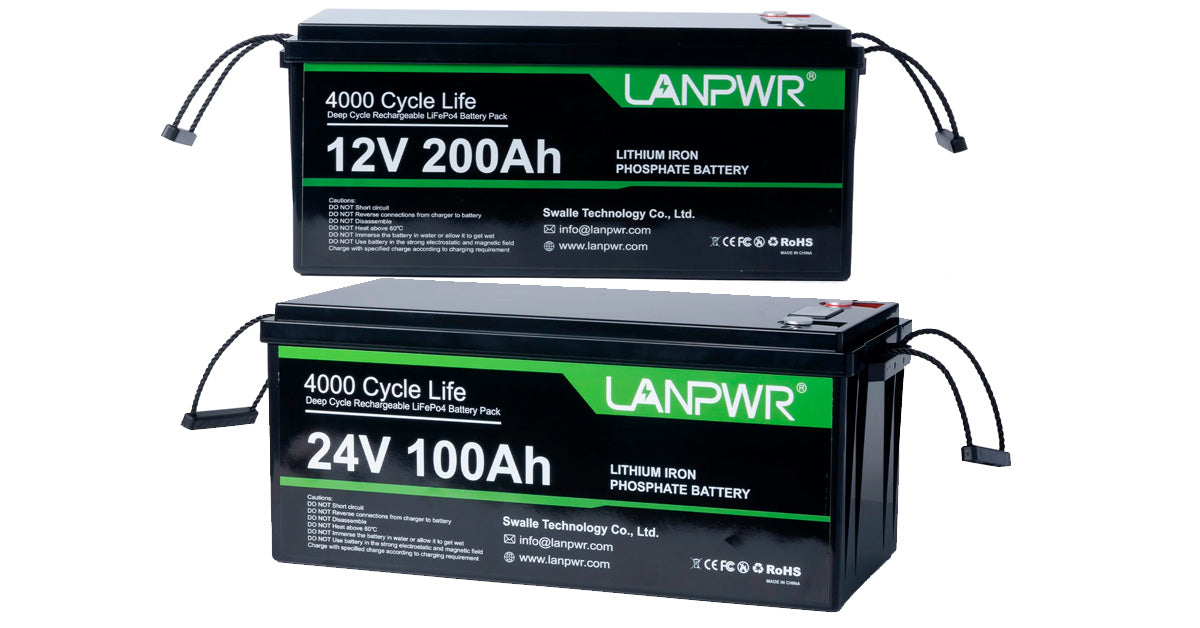
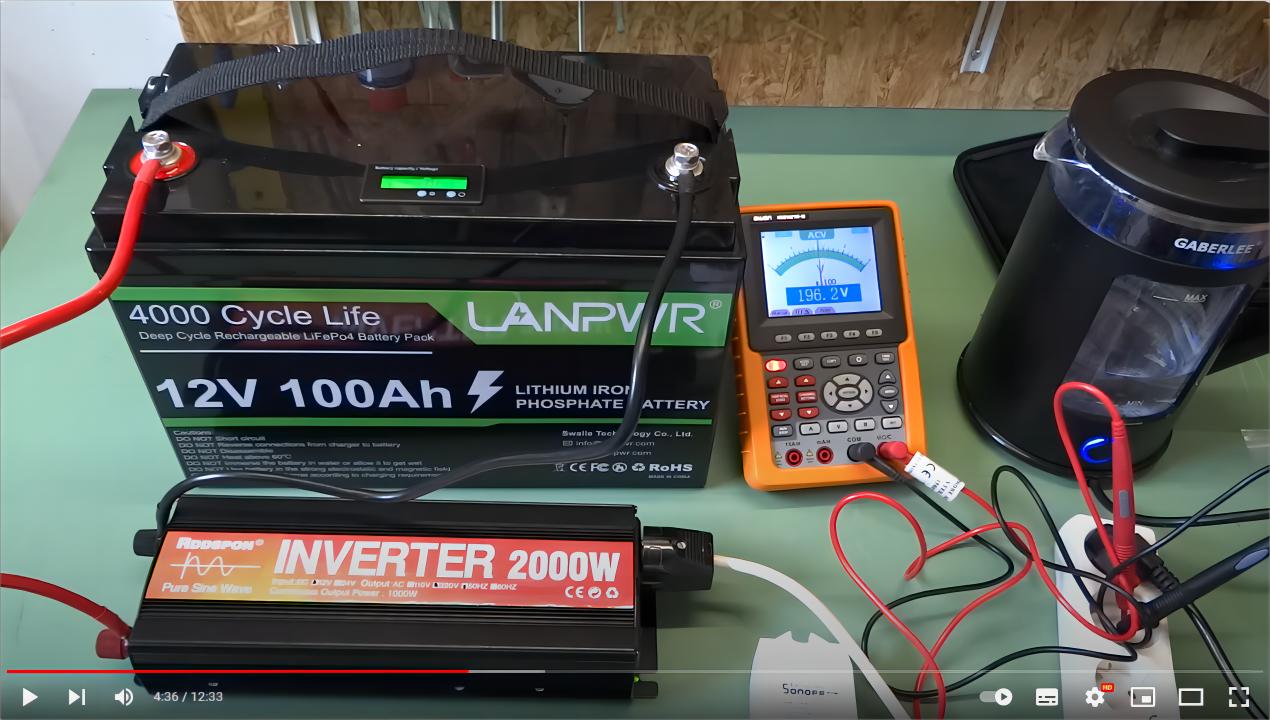
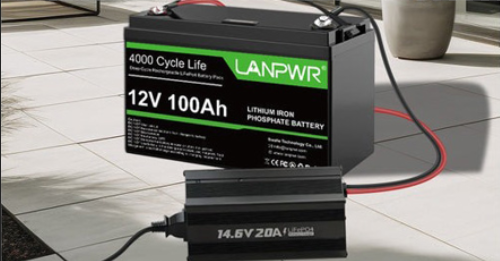


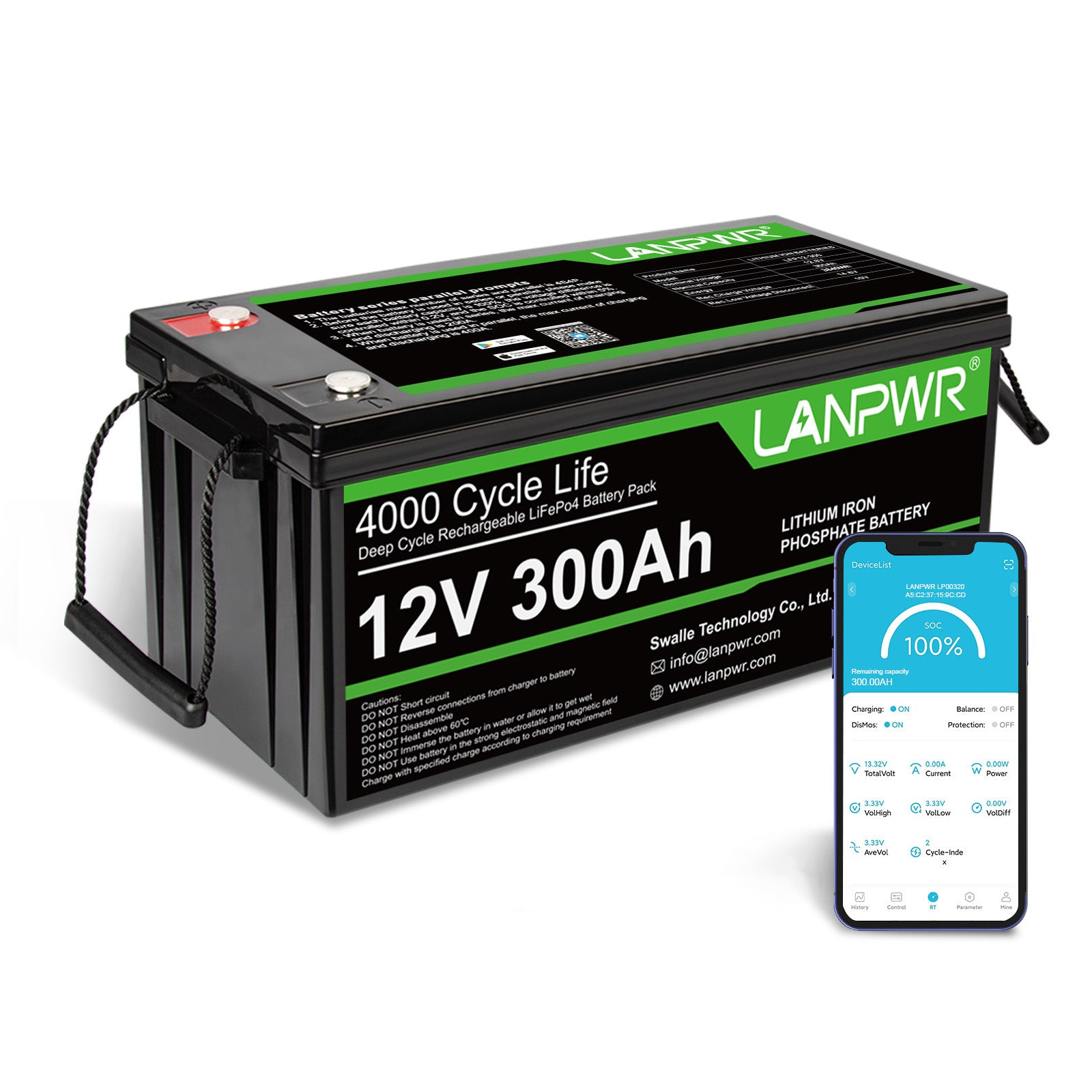
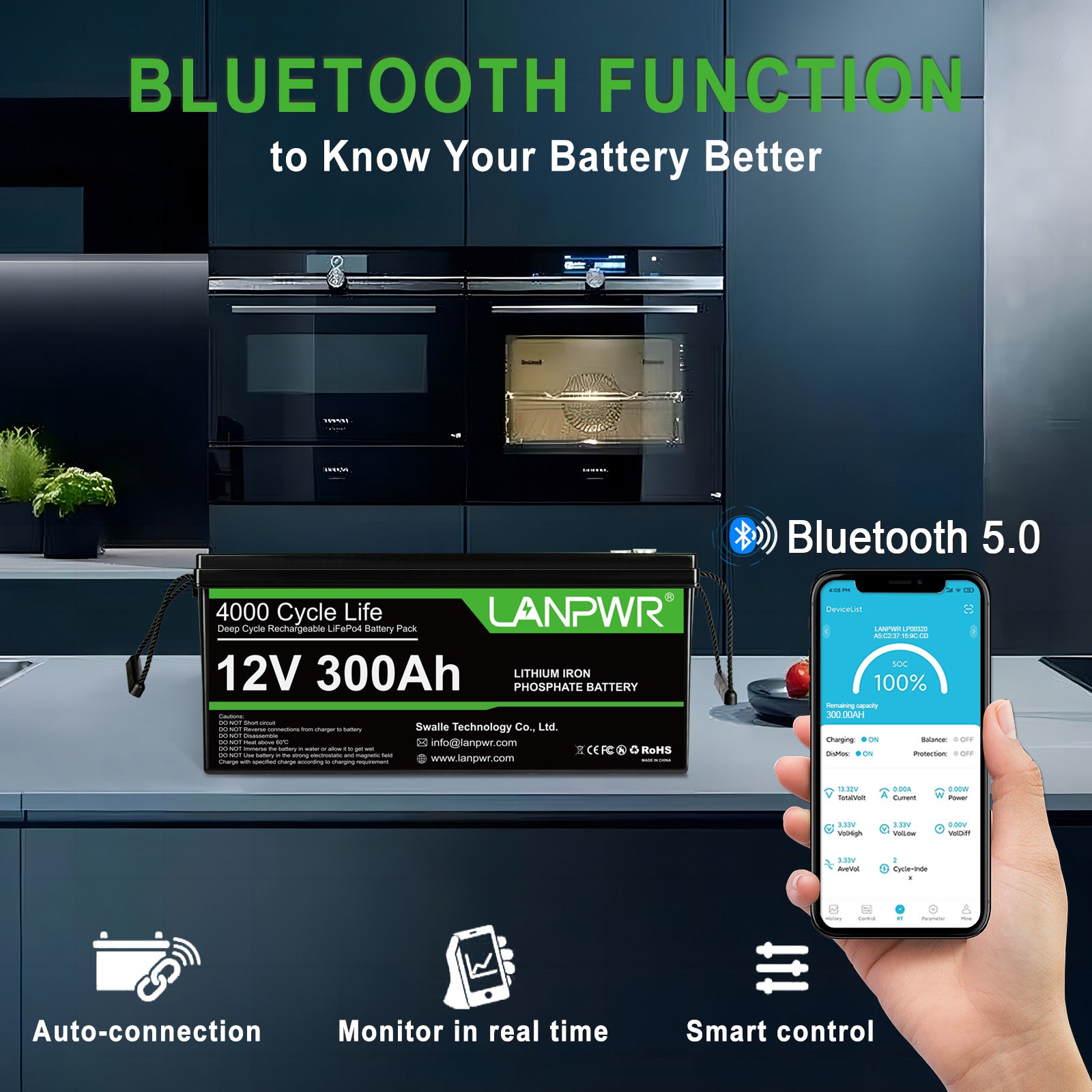
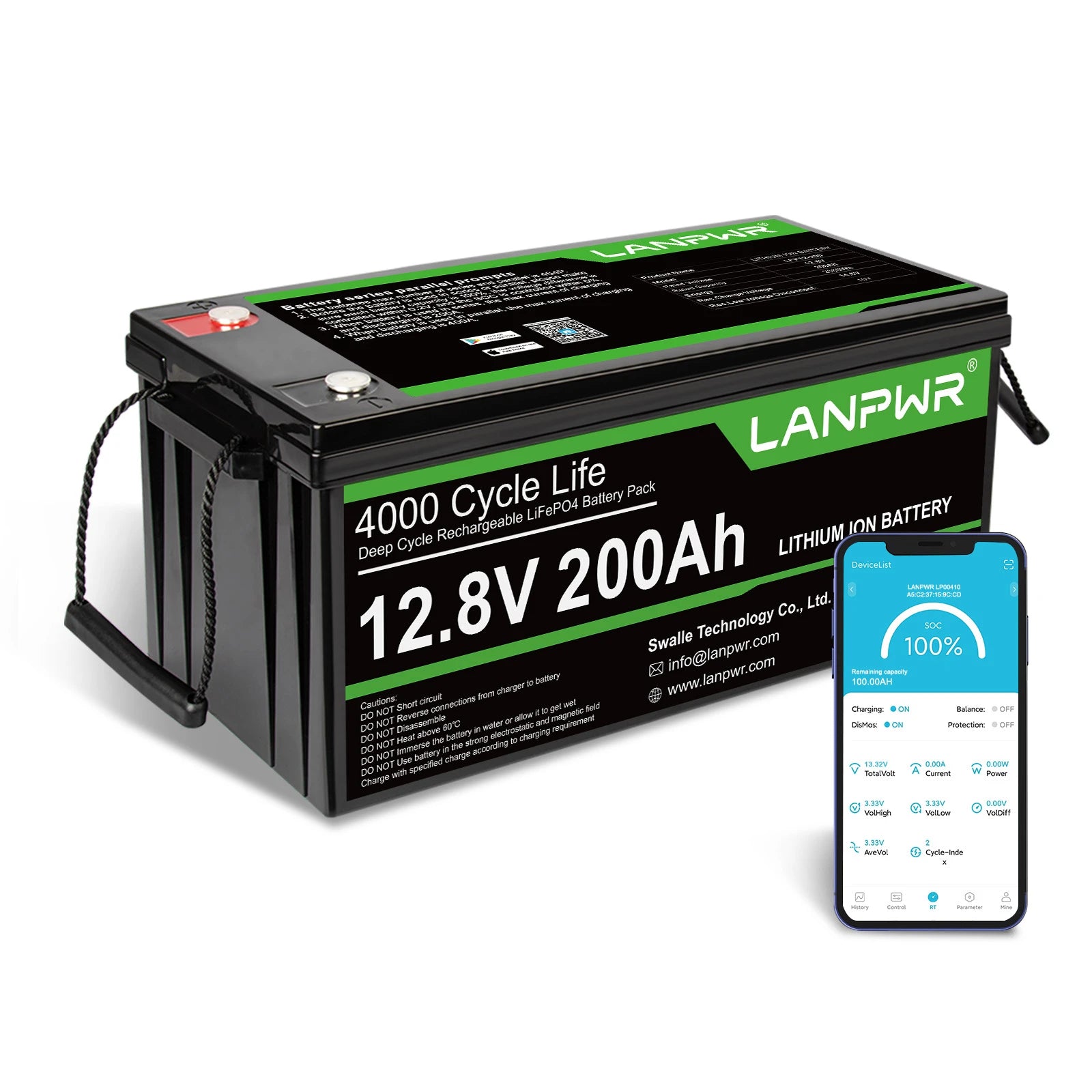
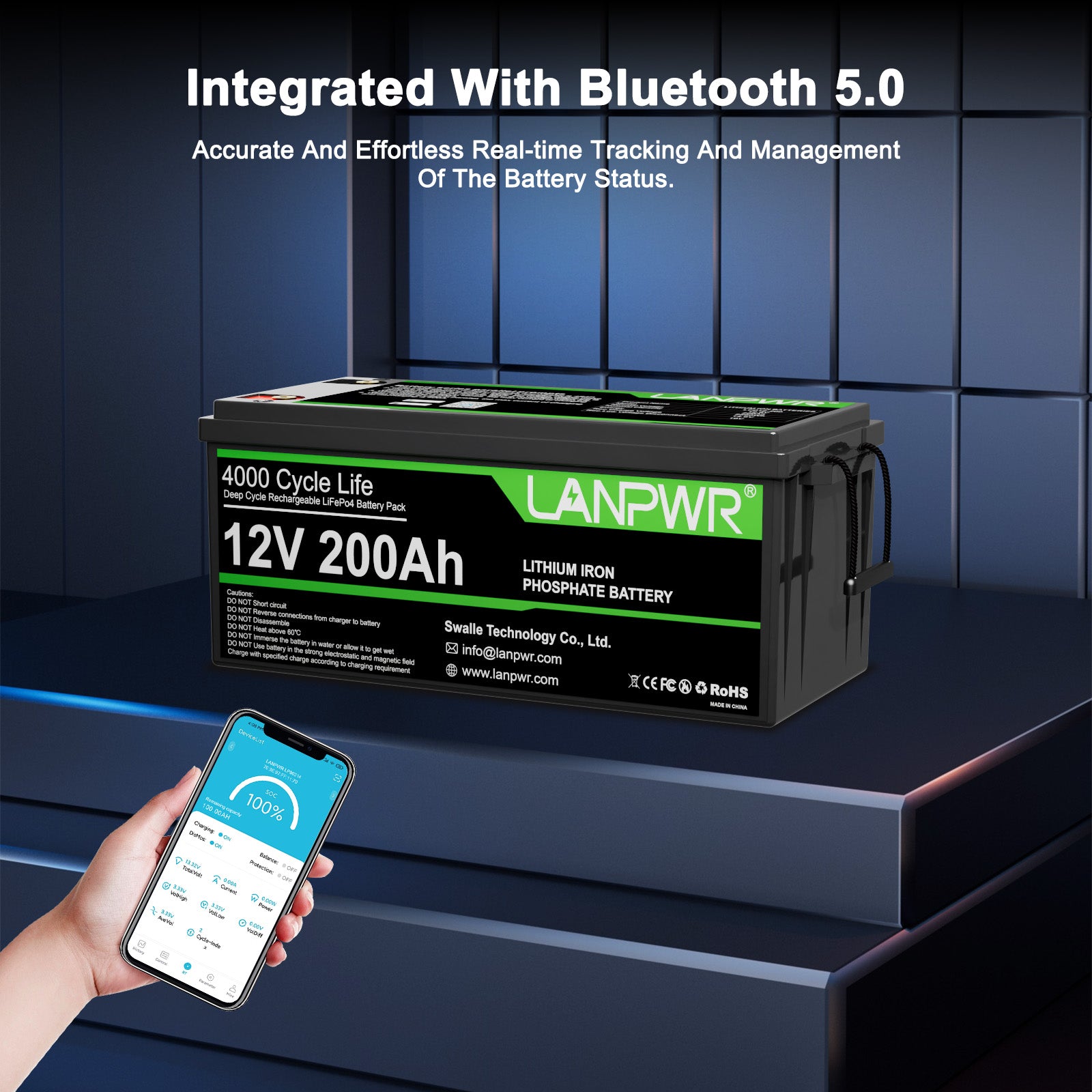
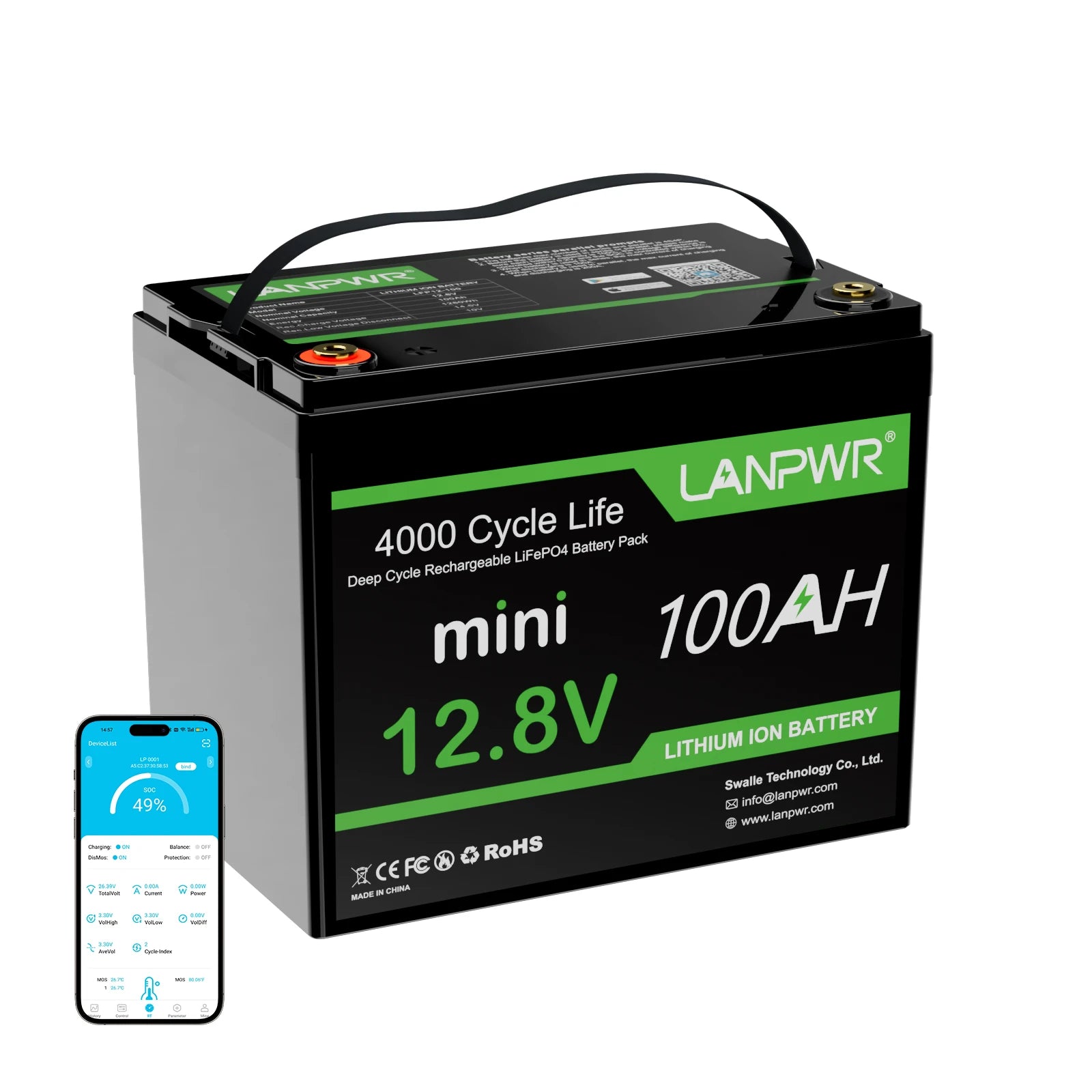

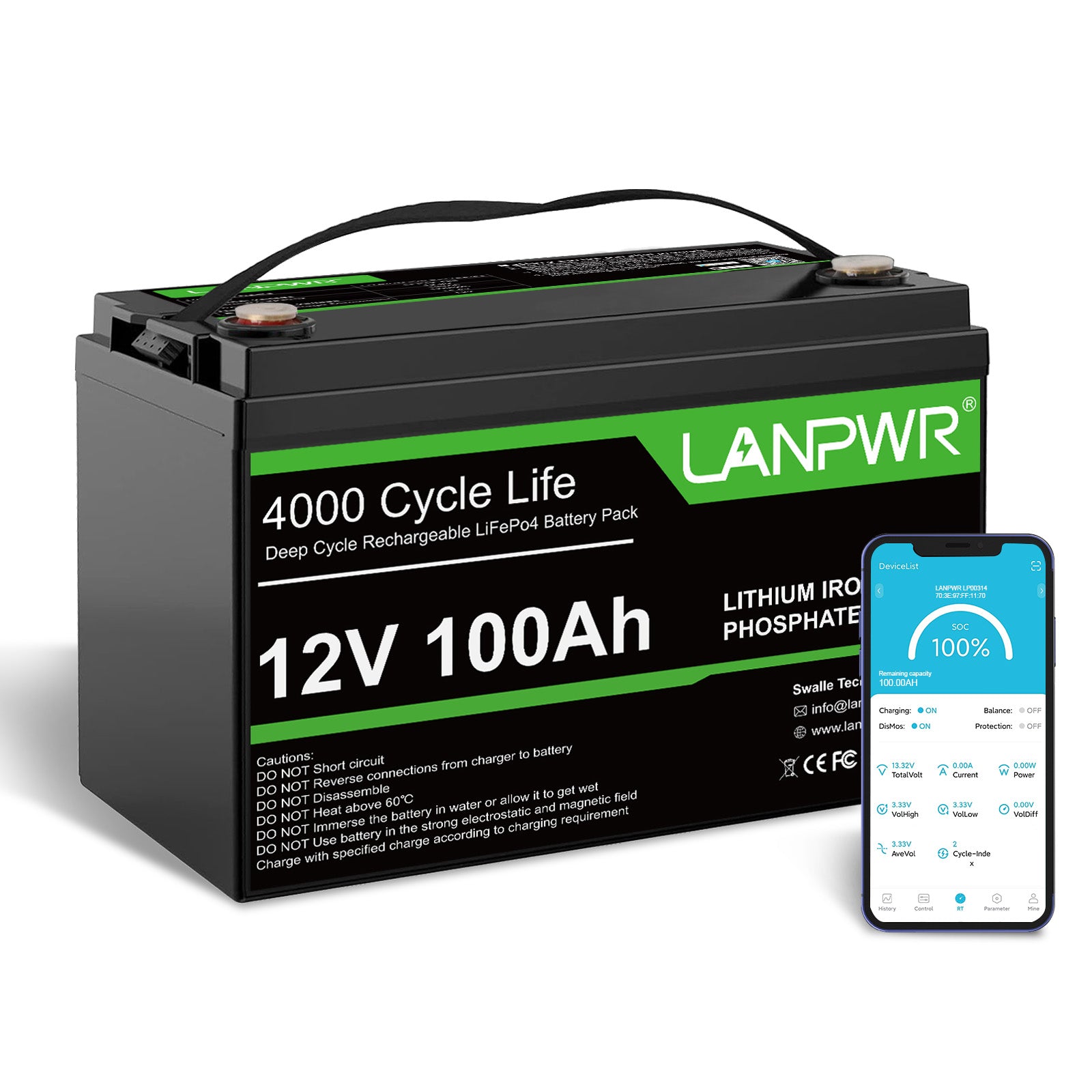

Leave a comment
This site is protected by hCaptcha and the hCaptcha Privacy Policy and Terms of Service apply.